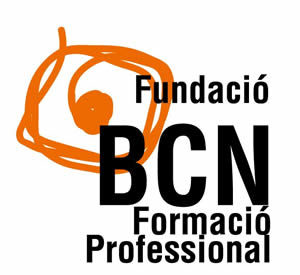- This morning the BCN Formació Professional Foundation presented the study “New trends and training needs in the 3D printing sector” at the headquarters of the Consorci de la Zona Franca de Barcelona.
- The research has been carried out with the collaboration of the CZFB with the support of AMB and the 3D Incubator.
- 3D printing is a great opportunity to create employment with the emergence of new professional profiles that makes it necessary to add this new way of producing in the training system.
Barcelona, 29 October 2021 – The Consorci de la Zona Franca de Barcelona (CZFB) has hosted this morning at its headquarters the presentation of the study “New trends and training needs in the 3D printing sector”, prepared by the BCN Professional Training Foundation with the collaboration of the CZFB and the support of AMB and 3D Incubator. The event was attended by Pere Navarro, special delegate of the State in the Consorci de la Zona Franca de Barcelona; Sara Berbel, president of the Fundació BCN Formació Professional; Àngel Tarriño, coordinator of the Observatori de l’FP; Pau Alarcón, technician at the Observatori de l’FP; and Pablo Valderrama, director of the 3D Incubator. Likewise, the closing of the act has been in charge of Héctor Santcovsky, director of the area of Social and Economic Development of the AMB, and Pere Navarro.
The study highlights that Catalonia is already one of the main 3D printing poles worldwide, and the Barcelona Metropolitan Area encompasses more than half of its companies. However, most companies suffer significant entry barriers, among which the need to adapt the training offer to the current economic and social reality stands out.
The study also offers updated information on the current and future situation, potential, trends and needs of the sector.
New professional profiles
This recent way of producing has caused the need for new professional profiles such as specialists in design, post-processing and finishings or engineers and technicians specialized in 3D printing.
This means a great opportunity to create employment that involves using 3D printing in the training system. In this sense, it is important, first of all, to have specialized teachers in the field to, later, offer continuous training to acquire knowledge and skills in 3D printing and create a training offer aimed at their companies and staff.
Along these lines, Pau Alarcón, from the Observatori de l’FP of the Fundació BCN Formació Professional, explained that “expanding the training offer (via adaptating training cycles, Dual Professional Training, and so on) would drastically contribute to boosting the sector and reducing the problems to find specialized labor”.
3D printing advantages
In recent years, with the development of the new economy, 3D printing offers several advantages that adjust themselves to new ways of consuming, producing and transporting. Among them must be highlighted production on demand, without the need for stocks, freedom in design and the possibility of large-scale customization, the manufacture of complex geometries without joints, or the possibility of manufacturing closer to the end consumer. Likewise, the main reason why this form of production is becoming consolidating is the rise in environmental sustainability and a greater concern on the circular economy.
Implementing 3D printing in industrial production has enabled companies to increase their competitiveness by reducing time and costs, expanding production capacities and improving service. As Àngel Tarriño, coordinator of l’Observatori de l’FP, has pointed out, “although the 3D printing sector is still in an initial phase, it has enormous potential, it already encompasses very varied fields and its evolution points towards an openness to many other sectors.”.
As Sara Berbel has concluded, “it is necessary to anticipate the talent needs of the new productive sectors that are called to be the drivers of change towards a more sustainable, effective, efficient and productive model that will generate jobs and wealth in our territory”.
3D Incubator and DFactory Barcelona, pioneering initiatives
The special delegate of the State in the Consorci de la Zona Franca de Barcelona, Pere Navarro, highlighted that “the entity is committed to the development of the 3D printing industry and was a pioneer in creating the 3D Incubator together with Leitat and the help of FEDER funds: the first high technology 3D printing incubator in Europe, with 75 companies already incubated”. 3D Incubator became a benchmark for public-private collaboration by creating a respirator and a bifurcer in record time during the pandemic.
Likewise, the CZFB will open at the end of the year the first phase of DFactory Barcelona, with Leitat as a technological partner. With 17,000 m2 destined to 4.0 Industry, it will become the main node of the digital industry in southern Europe, where HP has been the first company to become installed to carry out 3D printing research.
The AMB director of the area of social and economic development, Héctor Santcovsky, has highlighted “the will to work within the metropolitan strategy to strengthen the 3D printing industry sector within the framework of the commitment to the reindustrialization of the territory and the reactivation of the economy”.





